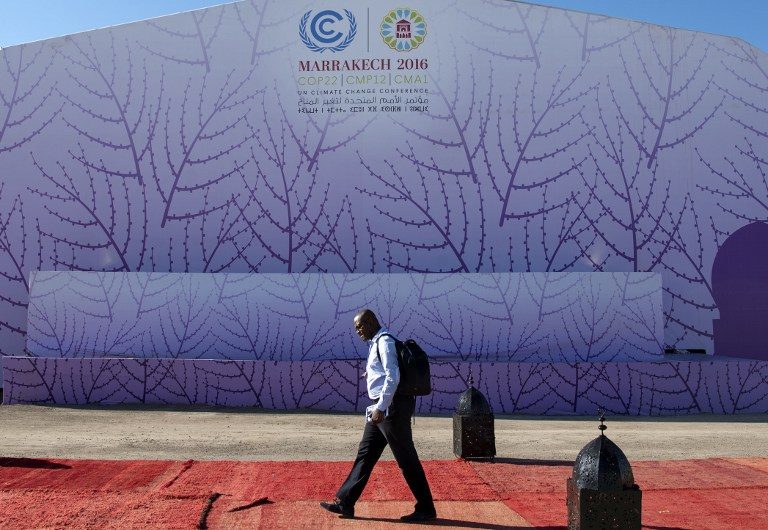SUMMARY
This is AI generated summarization, which may have errors. For context, always refer to the full article.

MARRAKESH, Morocco – The UN urged rich nations Tuesday, November 15, to ramp up financial aid to help poor countries shore up their defenses against climate change.
Finance is a hot-button topic at the annual round of UN climate talks underway in Marrakesh, Morocco – the first since the world’s nations adopted a hard-fought agreement last year to rein in global warming from fossil fuels.
Rich nations pledged back in 2009 to mobilize $100 billion (93 billion euros) per year from 2020 for climate aid to the developing world.
But poor nations are insisting on a clear roadmap for reaching the goal, and on a bigger focus on money for climate adaptation, which entails building resilience against global warming’s impacts.
So far, though, adaptation has received less than a fifth of climate finance made available.
“The cost for developing countries of adaptation alone could range from $140 billion to $300 billion by 2030, and from $280 billion to $550 billion by 2050 – up to five times higher than previously estimated,” UN Environment – also known as UNEP – said in a statement.
“The world has promised to help developing countries adapt to the disruption and hardship caused by changes such as altered rainfall patterns and rising sea levels,” the agency’s head, Erik Solheim, said in a statement issued in Marrakesh.
“We must keep that promise, narrow the adaptation finance gap and prevent it from widening further by redoubling our efforts to stabilize the world’s climate.”
Money for adaptation could go towards building dikes and homes elevated higher than projected sea-level rise, putting in place weather warning systems, improving access to drinking water, and making available seeds for climate resistant crops.
According to the Organization for Economic Cooperation and Development (OECD), pledges made by rich countries in 2015 alone would increase public climate finance from $41 billion in 2013-14 to $67 billion in 2020.
The Paris Agreement set an objective of limiting average global warming to two degrees Celsius (3.6 degrees Fahrenheit) over pre-Industrial Revolution levels by cutting planet-heating greenhouse gases from burning coal, oil, and gas.
For this, developing nations need finance aid for making the switch away from fossil fuels to more renewable energies – called mitigation – as well as for adaptation, and for coping with climate change effects that can no longer be avoided.
The UN says that on current emissions curbing pledges, the world is headed for warming of 2.9-3.4 C already this century.
Finance ministers gathered in Marrakesh will discuss climate finance on Wednesday. – Rappler.com
Add a comment
How does this make you feel?
There are no comments yet. Add your comment to start the conversation.